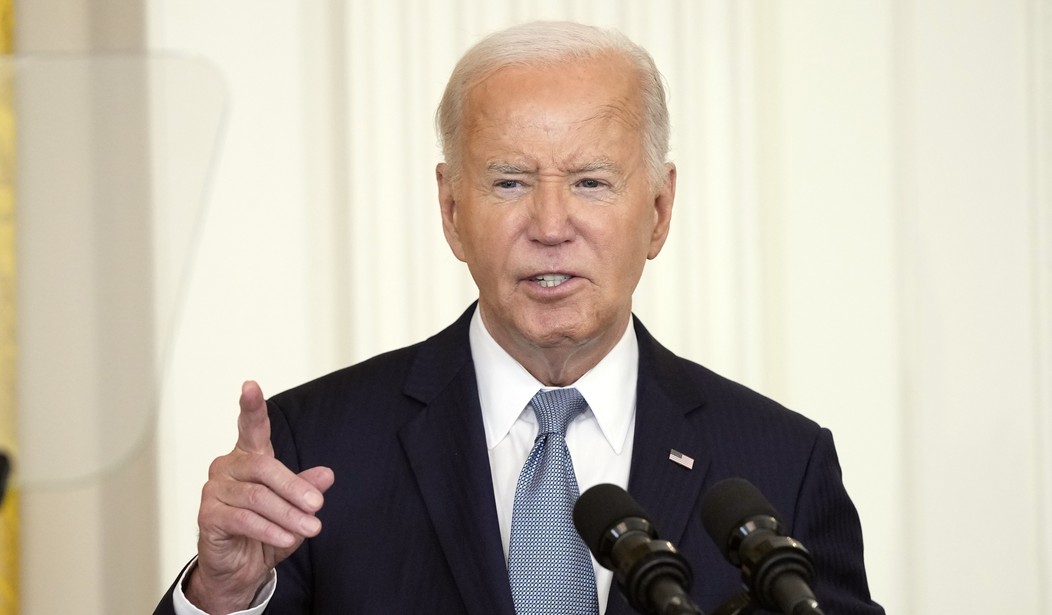“We hold these truths to be self-evident. All men and women are created, by the, you know, you know the thing. ” —Joe Biden
In contemplating how we identify good character and its implications in the American experiment, we delve into foundational principles that shape our understanding of liberty and governance. The ideals encapsulated in the phrase “We hold these truths to be self-evident” from the Declaration of Independence resonate through time, reminding us that the essence of good character—honesty, integrity, and respect for others—remains the bedrock of a healthy society. These principles guide not only personal conduct but also the functioning of a just government. Yet, as President Joe Biden’s memory lapses become more frequent, we must ask ourselves: are we, as a nation, forgetting who we are
The Constitution of the United States, born in an era of monarchies and oppression, stands as a beacon of liberty amidst evolving global challenges. It was crafted when kings crushed the people’s rights and freedoms, and now, centuries later, it guards against the threats posed by dictators, censorship, and radical partisan politics. The Constitution, designed to make people’s lives in America safe and pleasant, proves equally essential in global technocracies. As life becomes increasingly more complex in the digital age, so are the threats to freedom, which are becoming more menacing and continuously emerging from new sources and angles. Our indispensable and invaluable Constitution must be defended with vigor and vigilance to protect our liberty.
However, President Biden’s increasing dementia symbolizes a deeper issue: a collective forgetfulness of our foundational values and principles. This national amnesia threatens to undermine justice and the very fabric of our democracy. Among the misunderstood truths about “We hold these truths” lies the misconception that these principles are merely relics of a bygone era rather than timeless ideals adaptable to modern challenges. Critics often fail to see how these principles remain vital in guiding a nation through the intricacies of the twenty-first century. The Constitution’s enduring relevance is often overshadowed by the noise of contemporary politics and the rapid pace of technological advancement.
Recommended
However, its foundational principles continue to offer a steadfast framework for addressing modern issues, from digital privacy to free speech. As President Biden struggles to recall basic tenets and phrases that define our national identity, this misperception becomes even more dangerous. It is a stark reminder that forgetting our constitutional principles makes us vulnerable to losing the freedoms they protect.
A deeper understanding reveals that these very principles echo timeless moral teachings. Rooted in the Bible’s ethical framework, they uphold the dignity of individuals and the sanctity of liberty, resonating through centuries of societal evolution. Notice how subversive trends in education have revealed that attacks on the Constitution often coincide with attacks on the Bible.
This relationship suggests that the principles of the Constitution are intertwined with those of the Bible, sharing a common denominator in divine revelation. The Ten Commandments serve as the cornerstone of the Constitution, and the teachings of Christ form its fundamental principles. This connection underscores the moral foundation upon which the Constitution was built. In a time when our president struggles with memory lapses, it is crucial to remember and reinforce these connections.
Our adherence to these ethical underpinnings is vital to maintaining our national integrity and identity. Recognizing this synthesis of constitutional principles and moral teachings provides a more exact observation of their enduring relevance. The Constitution, inspired by the moral compass of the Bible, offers a blueprint for governance that transcends religious divides, anchoring civil discourse and societal progress. When the Founding Fathers wrote the Constitution, they resisted pressures to encroach upon divinely ordained human rights despite the challenges and chaos they faced.
They believed that respecting these rights, even in times of crisis, was essential for the nation’s stability and success. This faith in divine principles, enshrined in the Constitution, has guided the nation through wars, depressions, and other difficulties. As President Biden’s cognitive struggles illustrate a loss of personal memory, our nation must resist the broader trend of forgetting our constitutional and moral foundations. We must reclaim and reinforce these truths to ensure our continued prosperity and liberty. As we celebrate this Fourth of July, a recommitment to these foundational truths beckons. President Biden’s struggle with dementia serves as a poignant metaphor for the American people forgetting who they are. Upholding the Constitution not just as a legal document but as a moral covenant ensures that America steers true amidst contemporary challenges. Embracing this perspective offers a path forward, safeguarding liberty in an age of rapid change and uncertainty.
By recognizing the Constitution’s roots in timeless moral teachings, we can better appreciate its relevance and importance. This understanding can guide us in addressing modern issues while remaining true to the principles that have sustained our nation for centuries. As we navigate the complexities of the digital age, let us hold these eternal truths close, ensuring that our pursuit of progress does not come at the expense of the freedoms and values that define us as a nation
























Join the conversation as a VIP Member